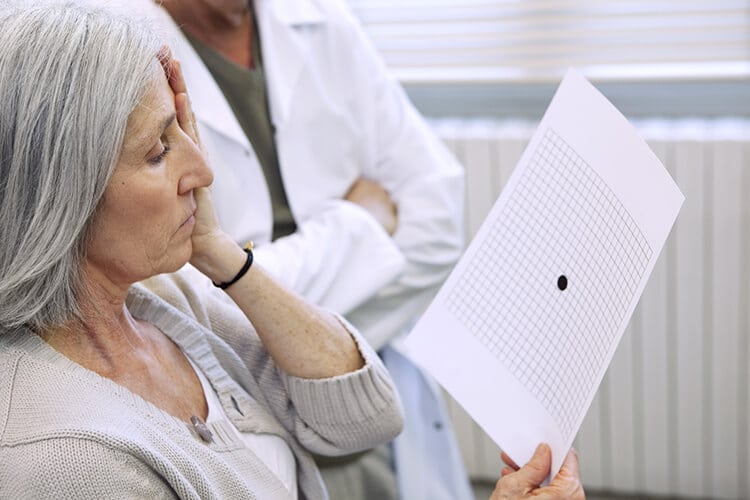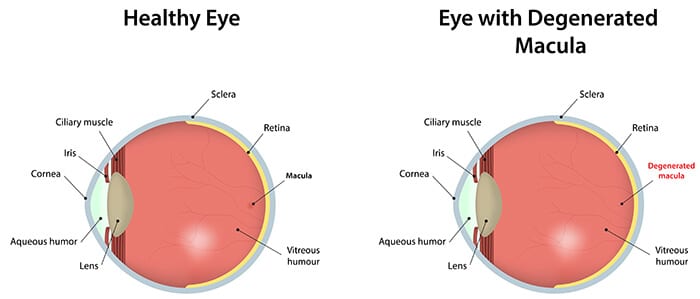Macular Degeneration
What is a Macular Degeneration?
The macula is a part of the retina in the back of the eye that ensures that our central vision is clear and sharp. Age-related macular degeneration (AMD) occurs when the arteries that nourish the retina harden. Deprived of nutrients, the retinal tissues begin to weaken and die, causing vision loss. Patients may experience anything from a blurry, gray or distorted area to a blind spot in the center of vision.
AMD is the number-one cause of vision loss in the U.S. Macular degeneration doesn’t cause total blindness because it doesn’t affect the peripheral vision. Possible risk factors include genetics, age, diet, smoking and sunlight exposure. Regular eye exams are highly recommended to detect macular degeneration early and prevent permanent vision loss.
Symptoms of macular degeneration include:
- A gradual loss of ability to see objects clearly
- A gradual loss of color vision
- Distorted or blurry vision
- A dark or empty area appearing in the center of vision
- eat a diet high in saturated fat (found in foods like meat, butter, and cheese)
- are overweight
- smoke cigarettes
- are over 50 years old
- are Caucasian (white people)
- have hypertension (high blood pressure)
- have heart disease
- have high cholesterol levels
- have a family history of AMD





